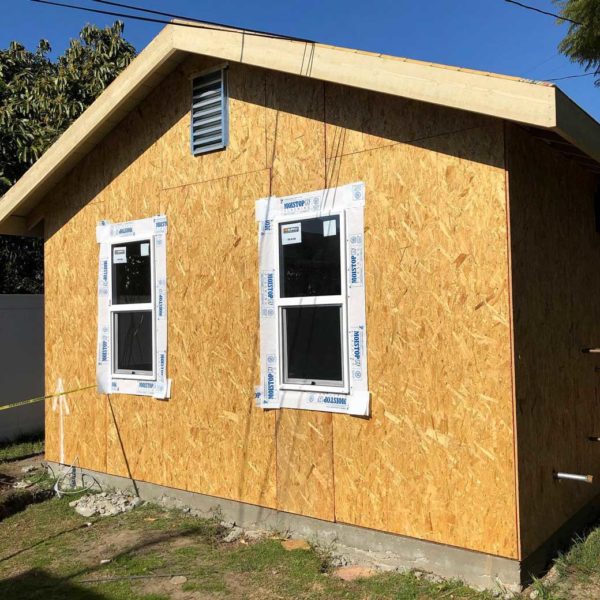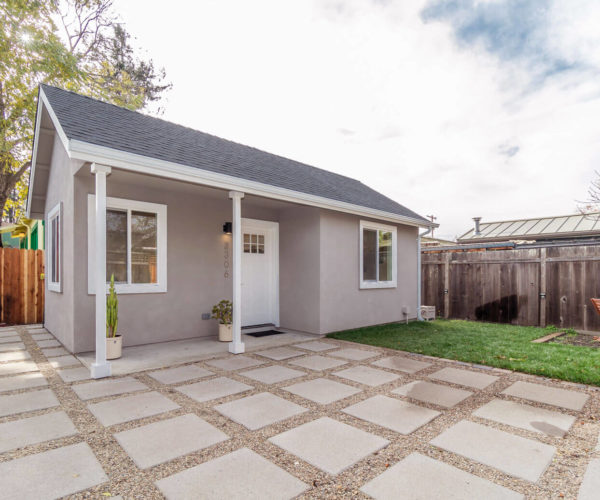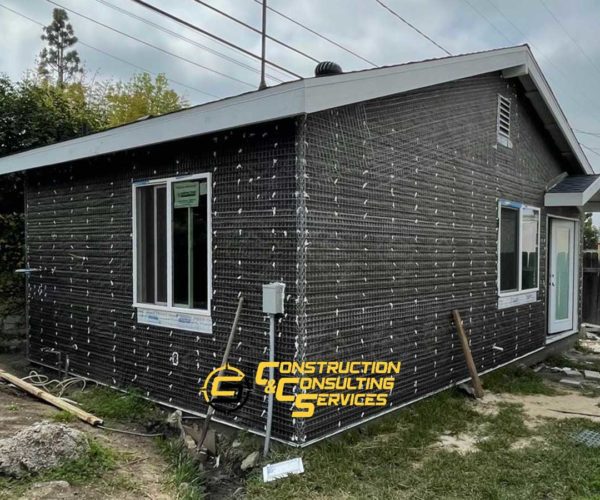Accessory Dwelling Units (ADUs) have gained significant popularity in California in recent years, largely due to the statewide crises of affordable housing. They provide the homeowners with an opportunity to generate rental income, accommodate family members, or simply enhance the value of their property.
While recent changes in zoning laws have made the ADUs more accessible than ever, many homeowners without personal savings or cash in hand still find it hard to secure financing.
Thankfully, it is possible to turn your ADU dream into a reality even without having cash readily available.
Here’s a guide to help you navigate the financial landscape of building an ADU.
How to Finance an ADU in Los Angeles?
The Federal Housing Administration (FHA) offers the 203(k) loan, a program that allows you to finance both the purchase or refinance of a home and the cost of ADU construction in one mortgage.
FHA 203(k) Loan:
The Federal Housing Administration (FHA) offers the 203(k) loan, a program that allows you to finance both the purchase or refinance of a home and the cost of ADU construction in one mortgage.

Cash Out Refinance
The cash-out refinance can be a great way to pull cash out to create ADU for those having equity of their home to withdraw from. This type of loan is inarguably the most economical option to secure funding for an ADU project when it comes to withdrawing home equity.
HELOC
A HELOC is another way to borrow against the equity they have built up in their homes. It works like a credit card, where you can borrow up to a certain limit, and you only pay interest on the amount you use. HELOCs usually have lower interest rates compared to other forms of financing.
Home Equity Loan
A Home Equity Loan (HEL) is a lump-sum loan that is secured by the equity in your home. Unlike a HELOC, you receive the full amount upfront and make fixed monthly payments. HELs typically have a fixed interest rate, making it easier to budget for repayment.
Second Mortgage
A second mortgage is another great option to secure funding for your ADU project while withdrawing your home equity. You can acquire the loan from a private mortgage lender or a bank and pay both mortgages at the same time.
Read more about how to use the equity value of your home to build an ADU.
Government Grants and Incentives:
California offers various grants, subsidies, or low-interest loans through state and local programs to encourage the construction of ADUs. Among these incentives is the $40K grant offered by CalHFA to cover some of the costs associated with accessory units.
Is a HELOC worth It?
HELOC is the most preferred option for those willing to secure financing against the equity they have built in their home for various reasons.
As mentioned above, it lets you borrow against the equity you have built up in their home. These loans usually have a draw period during which the funds can be borrowed, followed by a repayment period.
During that period, you can borrow a certain limit, usually based on a percentage of the appraised value of your home minus the balance of your mortgage. Since the interest rates on HELOCs are usually variable and tied to an index, such as the prime rate, you only need to pay interest on the amount that you borrow during the draw period.
What makes it an attractive option for financing an ADU include;

How is ADU Value Calculated?
Calculating the value of an ADU is an important step in obtaining financing for your project. Lenders evaluate the value of an ADU for a loan using several methods to ensure the loan amount aligns with the property’s worth and potential revenue. Some of them include;
Appraisal:
A professional appraiser takes into account various factors, size, condition, location, features, quality of construction, and comparable sales of similar properties with ADUs in your area. Based on these considerations, the appraiser evaluates the real value of your secondary dwelling.
Comparative Market Analysis
Lenders may perform a Comparative Market Analysis (CMA) to evaluate the value of your ADU.
This project involves comparing the ADU to recent sales of similar properties in your neighbourhood. This analysis helps in understanding the property’s value relative to others in the area.
Income Approach
For ADUs intended for rental purposes, lenders often employ the income approach. This involves estimating the potential rental income the ADU can generate.
Lenders generally calculate the Net Operating Income (NOI) by subtracting anticipated expenses (maintenance, property management, etc.) from the projected rental income. The NOI helps determine the value of the ADU.

Cost Approach
Lenders may use the cost approach, considering the total cost of building the ADU. This includes construction expenses, permits, labor, and materials. They may subtract depreciation or add appreciation to the total cost to determine the current market value of the proposed unit.
Local Real Estate Market Trends
Lenders take into account the current trends and demand for ADUs in the local real estate market. This includes factors such as rental rates, demand for housing, and property appreciation in the area.
Rental Income Evaluation
Lenders may assess the rental agreements, leases, or appraising rental rates for ADUs in the area to evaluate the value of your ADU. It helps them establish the ADU’s income-generating potential and, subsequently, its value.
Loan-to-Value (LTV) Ratio:
The lender takes into account the Loan-to-Value ratio, the loan amount relative to the appraised value of the property, to consider your eligibility for the loan. Lenders usually have specific LTV limits for different loan products, and the ADU’s appraised value influences the loan amount.
ADU Grant Program
California last year announced a $100 million grant for homeowners who do not have enough home equity to cash out and refinance their ADU project.
Under the scheme offered by CalHFA, an independent agency in California that works with the state’s building department, qualified borrowers can get a grant of up to $40K for their ADU project.
The grant is specifically designed to cover the preconstruction closing costs associated with an ADU project.

Who Qualifies for ADU Grant?
To become eligible for an ADU grant, you will need a fixed-price proposal from an ADU contractor to get your loan approved by a lender. The criteria that CalHFA uses to approve a grant is exactly what your lender used to approve your loan.
You can apply for the CalHFA grant program if you,
- Own and currently live in the primary dwelling.
- Apply for a loan of at least $200K
- Have an equity of 25-30% on their home.
Consulting with a lender will help you accurately evaluate your eligibility for the ADU grant.
Read more about the ADU grant program here.

Final Words
With the increasing demand for housing and the potential for rental income in California, investing in an ADU can be a wise financial decision for homeowners. Navigating the finances, however, can be a complex and overwhelming endeavour. However, before selecting a financing option, it is important to thoroughly research and compare the terms, interest rates, and repayment terms to determine the best fit for your financial situation.
It is advisable to consult with expert ADU consultants who can provide valuable insights and guidance throughout the process. Additionally, consulting with lenders and understanding their specific requirements will help you prepare and plan for financing your ADU effectively.
ADU Experts You Can Trust
For years, we at CCS Inc. have been helping Los Angeles homeowners visualize their ADU dreams.
From helping you secure funding for your ADU project to designing your floorplans and obtaining the permits to building the unit from the ground up, we work with you at every step of the way.
Reach out to us to discuss your ADU endeavor with our expert consultants.








